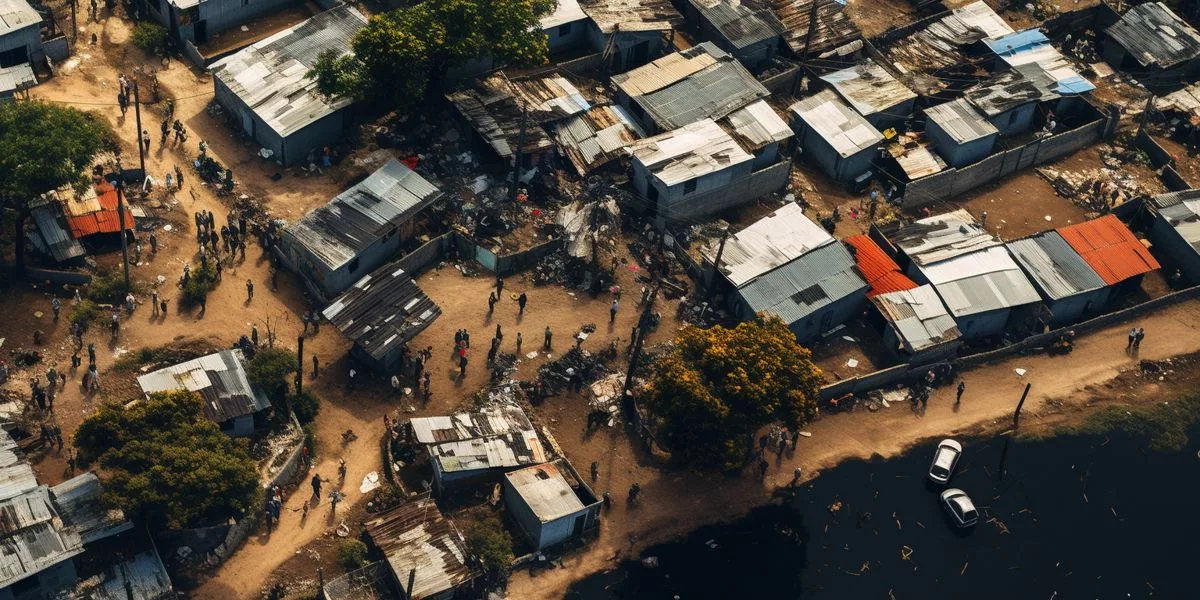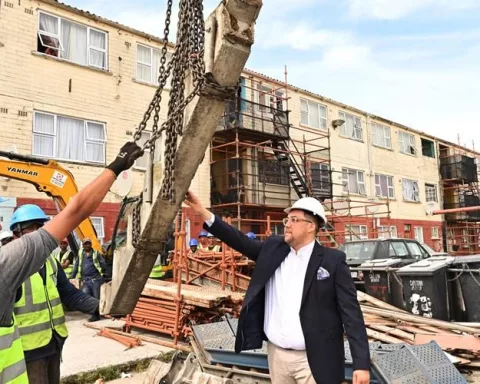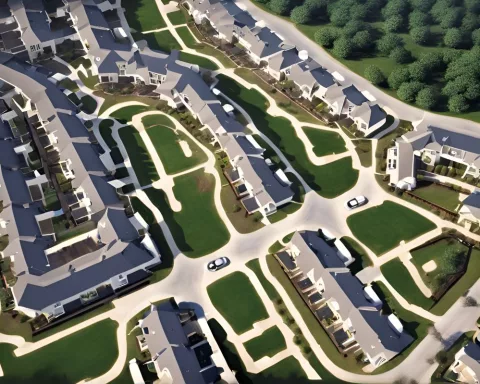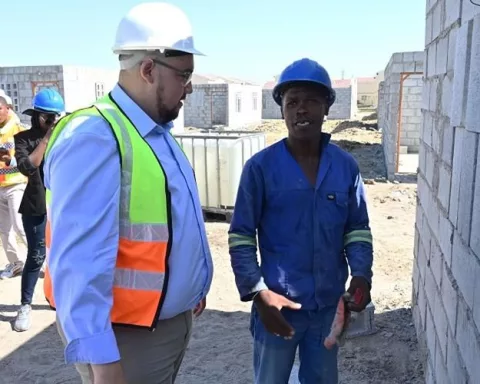Affordable housing in South Africa and Kenya is a critical issue due to the consequences of urbanization and wealth disparity. Rapid urbanization has led to a shortage of affordable housing for the “missing middle” segment. To address this, specialized solutions must be flexible, responsive to market dynamics, and cater to diverse needs. Collaboration between stakeholders is essential for effective problem-solving, and the SA-Kenya Affordable Housing Forum Launch marks a significant stride towards reshaping the affordable housing scenario.
What are the challenges of affordable housing in South Africa and Kenya?
The challenges of affordable housing in South Africa and Kenya are rooted in the consequences of urbanization and wealth disparity. Rapid urbanization has led to a shortage of affordable housing, particularly for the “gap market” or “missing middle” segment. To address this, specialized solutions must be developed that are flexible and responsive to changing market dynamics, supply limited affordable housing, and cater to the diverse needs of the gap market. Collaboration and shared learning between stakeholders are essential for effective problem-solving.
On December 14, 2023, an influential assembly convened at the Houghton Hotel in Johannesburg. This gathering marked the inauguration of the South Africa-Kenya Affordable Housing Forum. The forum was spearheaded by the esteemed Mmamoloko Kubayi, Minister of Human Settlements, South Africa. The event witnessed the participation of a diverse group, which included business moguls from both countries, property developers, distinguished invitees, and other stakeholder groups. The primary agenda of this crucial meeting was to delve into the pressing issue of affordable housing.
The Dual Challenges of Urbanization and Wealth Disparity
The economic and market growth over the years has given rise to two intertwined challenges: climate change and wealth inequality. The former, an unintended outcome of the industrial revolution, has spurred a global environmental crisis. The latter, a scar from the colonial era, has resulted in substantial impoverishment, particularly in South Africa and Kenya.
The adverse conditions of climate change and poverty have led to a mass migration from rural to urban areas. This swift and unregulated urbanization has resulted in burgeoning cities unequipped to host such a massive influx of people.
Originally designed for a small populace, these cities are now witnessing an exponential growth in informal settlements or urban slums. Not all inhabitants of these areas are entirely impoverished. Many earn a modest income, which, however, is neither low enough to qualify for government-subsidized housing nor high enough to procure a home loan from banks. They form a unique segment, often referred to as the “gap market” or the “missing middle.” Their unique circumstances call for a specialized solution: affordable housing.
The Complexities of Affordable Housing
The challenge of constructing affordable housing is a multifaceted one. It demands an in-depth understanding of the diverse needs of the gap market due to varying purchasing powers. Further intricacies involve developing distinct tenure models for different demographics and facilitating suitable credit access.
Eligibility for affordable housing schemes is also a significant concern. For instance, with the First-Home-Finance scheme, the current eligibility income bracket is set at R3,501 to R22,000 per month. But the feedback from stakeholders suggests individuals earning between R22,000 and R29,000 are left in a vulnerable situation due to the lack of affordable housing options. Thus, it becomes evident that affordable housing policies need to be flexible and responsive to the changing dynamics of the housing market.
Affordable Housing and Market Dynamics
Another crucial aspect is the supply side of the market. The demand for affordable housing is high, but the supply is limited due to factors such as the rapidly growing urban population, elevated construction and finance costs, and escalating prices of urban land. Affordable housing creation is not just about building homes. These houses also need to be located close to social amenities, economic activities, and affordable transport facilities.
According to a study by the Human Science Research Council (HSRC), many affordable housing projects are not ideally located. In response, the South African government has declared 136 Priority Human Settlements and Housing Development Areas (PHSHDAs) across the nation. The goal is to amend past spatial planning mistakes, rejuvenate cities and towns, and bring people closer to areas of economic activity and social amenities.
To cater to the needs of the gap market, several solutions have been proposed:
-
The Informal Settlements Upgrading Programme: This initiative aims to streamline the upgrading of informal settlements. It includes community consultation and participation, the provision of emergency and permanent services, and security of tenure.
-
The First-Home-Finance: This program provides non-mortgage finance instruments for eligible households. It also provides funds to households holding “Permission-To-Occupy” certificates, crucial for residents in rural areas.
-
Urban Renewal: This strategy involves investing in the deteriorating central business districts (CBDs) through the Urban Settlement Development Grant and the Social Housing Regulatory Authority (SHRA). The objective is to create social housing by re-purposing old buildings.
-
Social Housing Sector Transformation: The SHRA and the National Housing Finance Corporation (NHFC) are developing a pipeline of social housing projects to attract private sector investment.
The ultimate goal is to provide ample housing for the missing middle, particularly in urban areas. However, the government’s financial constraints necessitate substantial investment from the private sector and Development Finance Institutions.
The Path Forward: Collaboration and Shared Learning
The challenges faced by South Africa are reflected in Kenya, offering an opportunity for collaborative problem-solving. The SA-Kenya Affordable Housing Forum Launch marks a significant stride towards reshaping the affordable housing scenario. It provides a platform for stakeholders to exchange experiences, gain insights, and devise strategies to expedite the provision of affordable housing.
Through these multifaceted interventions and ongoing discussions, there is an emerging sense of optimism that the urbanization challenge can be tackled effectively, ensuring every citizen has access to affordable housing.
- What are the challenges of affordable housing in South Africa and Kenya?
-
The challenges of affordable housing in South Africa and Kenya are rooted in the consequences of urbanization and wealth disparity. Rapid urbanization has led to a shortage of affordable housing, particularly for the “gap market” or “missing middle” segment.
-
What was the primary agenda of the South Africa-Kenya Affordable Housing Forum Launch?
-
The primary agenda of the forum was to delve into the pressing issue of affordable housing.
-
What are the complexities of affordable housing?
-
The challenge of constructing affordable housing demands an in-depth understanding of the diverse needs of the gap market due to varying purchasing powers. Further intricacies involve developing distinct tenure models for different demographics and facilitating suitable credit access.
-
What are the proposed solutions for affordable housing?
-
Proposed solutions for affordable housing include the Informal Settlements Upgrading Programme, the First-Home-Finance, Urban Renewal, and Social Housing Sector Transformation.
-
What is the supply side of the affordable housing market?
-
The demand for affordable housing is high, but the supply is limited due to factors such as the rapidly growing urban population, elevated construction and finance costs, and escalating prices of urban land.
-
What is the path forward for affordable housing in South Africa and Kenya?
- Collaboration and shared learning between stakeholders are essential for effective problem-solving. The SA-Kenya Affordable Housing Forum Launch marks a significant stride towards reshaping the affordable housing scenario.












